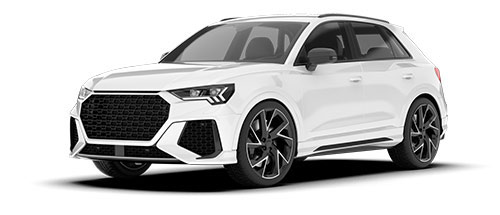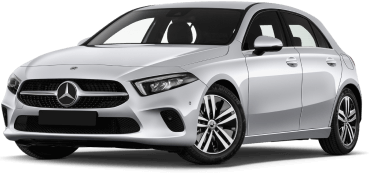Write Off Vehicle Check
When it comes to purchasing a used car, there are many checks that need to take place to ensure you’re buying a reliable vehicle. One of the most important things to do is to run a car check as to whether the car is written off or not.

You might be thinking that it’d be obvious to tell if a car is written off or not. However, this couldn’t be further from the truth. Car write-offs come in different categories, as to which we will discuss later. Driving a written off car is incredibly dangerous… and expensive.
This guide will take you through everything about car write-offs, including fast ways to check if a car is written off.
What Does It Mean If A Car Is Written Off?
If a car is written off, it means it’s either damaged beyond repair or too unsafe to drive. If the car is damaged beyond repair, your insurance provider will typically give you a cash payout. The car will go to the scrap. If your car is too unsafe to drive but can be fixed, your insurance company will help to determine the repair costs.
When a car is written off, it is your duty to let the DVLA know. The Motor Insurance Fraud and Theft Register (MIAFTR) will also register your car’s details. The MIAFTR is a database for all stolen and written off vehicles.
Insurance Write-Off Categories
As mentioned earlier, it’s not always easy to tell whether a car has been written off or not. This is due to the fact that damage isn’t always visible. Car write-offs are split into different categories, depending on severity. These cqr category checks range from A to D, with A to B referring to irreparable damage and C to B referring to high repair costs.
Cat A: If a car is put into category A, you can wave goodbye to it. Category A is the most severe category of them all; it means the car is in too dangerous of a state and cannot be driven. Category A means the car is going to the scrap.
Cat B: If a car is in category B, it can still be driven but not to great extents. The car has experienced great harm and only a few areas might be able to get repaired.
Cat C: When a car is in category C, it means that the value of repairs will be far higher than the value of the car itself. This usually occurs when the car has been in a serious accident. Category C actually used to be called Category S, however this changed in 2017.
Cat D: If a car is in category D, it means that the vehicle can be repaired but the cost of repair is too high in comparison to the vehicle’s worth.
To put it simply, categories A to B usually result in a vehicle going to the scrap. Cars in categories C to D typically get sold on by insurance. There are also two more categories to be aware of; S and N. These fall into the same categories as C and D.
Cat S: If a vehicle is in category S, it means the car has structural damage.
Cat N: A vehicle in category N has no structural damage. A vehicle in category N means that the outer frame or chassis is damaged.
Cars can be repaired when in category S and N. A car in category N is typically the cheapest to repair.
Write Off Check FAQ
As you can see by the above categories, a write off doesn’t always mean that the car is going to the scrap. This, unfortunately, leaves room for scammers to sell written off cars. To avoid falling into one of these scams, it’s wise to conduct a car write off check.
A car write off check helps you to uncover any hidden parts about a car's history - including whether the car has been written off or not. A write off check will show you all write off categories, however a car vehicle check will only show you categories A to B. The type of check you choose will entirely depend on budget and information you wish to find out.
Although write off checks don’t give you stacks of information, they will tell you all you need to know regarding whether a vehicle is worth purchasing or not. Unintentionally purchasing a written off car will open up a whole can of problems.
Firstly, the car will be too dangerous to drive, putting yourself and others on the road at risk. There’s no telling how a written off car will react when driven, and in a worst case scenario, it may cost you your life.
Secondly, driving a written off car will result in some extremely expensive bills. If the car was written off and didn’t receive any repair work, we can almost guarantee that this will fall onto you. And, the more severe the damage is, the more money you’ll be expected to pay. Paying for multiple repairs on top of the cost of the car is not a wise decision.
If you have doubts about a car but seem to be getting sold the dream, a car write off check will be sure to settle any dispute. Whether the current car owner has been honest or not, you’ll be able to see the car’s history in black and white thanks to the vehicle check. If you carry out the write off check and discover that a car is written off, raise this with the owner of the vehicle right away. However, there are no excuses for not telling a potential buyer about something so important, so we suggest walking away from the deal. No written off car is worth your money or safety.
When a car is written off, its value is reduced, meaning it will be significantly cheaper to purchase compared to other vehicles of the same make and model; however, you must conduct thorough research before buying a cheap, previously written-off car, no matter how good the bargain is.
Check a car's history to reveal its write-off status as well as other insightful data.
Also, we recommend you buy from a dealer as opposed to a private seller to glean as much information as possible.
Remember, never purchase a Cat A or B car, as these cannot be repaired and should have been scrapped.
To find out whether a car has been written off in the past, conduct a car history check.
A comprehensive car check will also reveal other important information about a vehicle, such as its mileage, MOT, and ownership history, providing insight into how well looked after a car has been and how many times it has changed hands.






